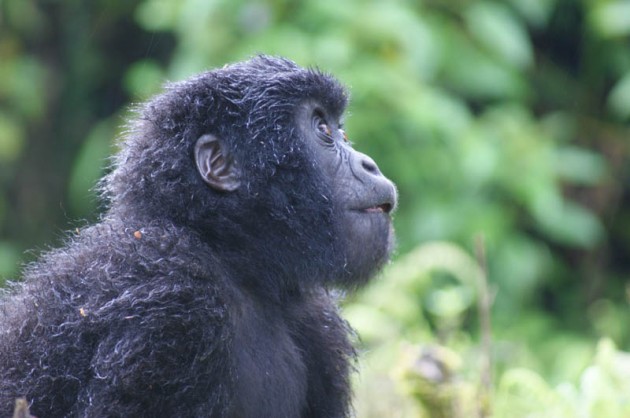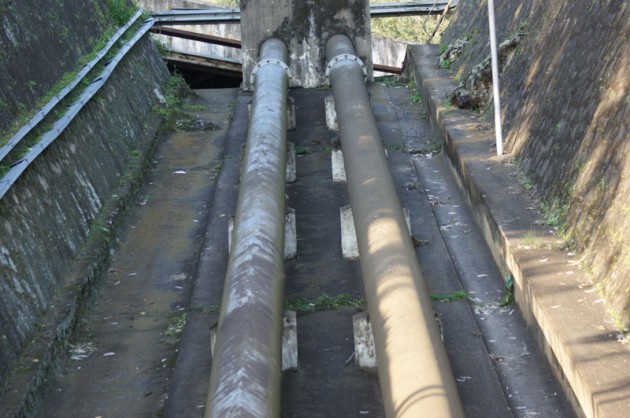 GISENYI, RWANDA– I’m out of the country again, and this time I’m in Rwanda, and no, it’s not vacation. I’m meeting with entrepreneurs. The day before I left Michael asked me how I was going to piss off a whole country this time. You’ll note instead, I’ve been remarkably quiet. (Although one resident seemed to take issue with my being here…) I haven’t been blogging more, because many of the entrepreneurs I’m meeting with aren’t techies—although they’re plenty innovative in the way they approach what some may consider boring goods and services businesses.
GISENYI, RWANDA– I’m out of the country again, and this time I’m in Rwanda, and no, it’s not vacation. I’m meeting with entrepreneurs. The day before I left Michael asked me how I was going to piss off a whole country this time. You’ll note instead, I’ve been remarkably quiet. (Although one resident seemed to take issue with my being here…) I haven’t been blogging more, because many of the entrepreneurs I’m meeting with aren’t techies—although they’re plenty innovative in the way they approach what some may consider boring goods and services businesses.
This is my second trip to Rwanda this year, and it’s clear there are many ways this country stands out from much of Africa, and many ways it’s still very challenged in terms of foreign investment.
Many of the greatest achievements have been social and societal. The country has admirably rebuilt itself since the 1994 genocide. It’s one of the only times in recorded history the victims of a genocide had to go live in the same land with the perpetrators, which was no easy feat given how much of the general population was guilty of the crime. Rwandans have amazingly pioneered a practice of accountability and forgiveness, which is all the more striking now that many of the killers are finishing their prison sentences and re-integrating themselves into the small, densely-populated country. A better write-up of that side of Rwanda is in a recent New Yorker, when Philip Gourevitch who wrote one of the more famous books on the genocide revisited the country 15 years later.
But the business side of the country is more nuanced. On the plus side, Rwanda has almost no corruption, an impeccably clean capital city, wide access to basic health care and primary school education, boasts some of the best roads in Africa, better cell phone access than much of Silicon Valley (cough, cough, Sand Hill Road, cough) and almost zero violent crime. On the negative side, it has one of the weirdest economies I’ve ever encountered.
This trip has cost several times what my two weeks in China cost me last month. Even though Rwanda is one of the poorest countries in Africa, a modest hotel with no air conditioning, an elevator that routinely breaks, and an outlet that started smoking when I plugged something in will cost you about $200 a night. Think that’s bad? A nicer one quoted me rates of up to $700 a night. A car and driver will cost a minimum of $80 a day—several times what you pay in China. It’s not inflation, as far as I can tell, it’s largely because landlocked Rwanda has to pay so much to import goods and a lot of raw materials. No doubt, there’s a bit of speculating thrown in, too. (The nicer hotel I mention above quoted me half that price just a few months ago. Did their costs really double? I doubt it.)
These inflated costs—whether because resources are scarce or suppliers are gouging—reinforce one another. Internet access, while more plentiful than you’d expect, costs hotels and businesses thousands of dollars a month for one megabit speeds, according to Eugene Nyagahene, CEO of Tele10, a local satellite ISP provider. (Another entrepreneur told me he only pays several hundred dollars a month for EVDO access, still, in a country where jobs pay an average of $100 or so a month, that’s pricey.) That might explain part of my steep hotel bill. Currently Internet access comes from satellites, and the best news for the country may be the huge spools of fiber optic cable I keep seeing by the side of the roads and trenches being dug even in the middle of the night to accommodate them.
But while Rwanda may not yet be on the other side of the digital divide, the country is surprisingly progressive when it comes to the environment, especially for an emerging economy entering the industrial age. President Paul Kagame has a strict ban on plastic bags—to the point where customs  officers will take them away from you at the airport. Its largest textile manufacturer, Utexrwa, produces garments and fabrics start-to-finish in-house using all natural cotton, silk and soon, fabrics made from locally-grown banana fibers. Even the dyes are made from natural ingredients. (See some of Utexrwa’s beta silk worms munching on mulberry leaves to the right.) Local governments are teaching subsistence farmers– near 90% of the population– courses on organic farming. And the country takes great pains to terrace its rich agricultural land preventing erosion and to protect its greatest tourist asset, the silverback gorillas made famous by the movie “Gorillas in the Mist.” Armed guards follow each tribe 24-hours-a-day to make sure they’re protected from poachers and the landscape stays pristine. Like a society trophy wife, Rwanda knows its beauty is one of its greatest assets and the country isn’t about to screw with that in the name of industrialization.
officers will take them away from you at the airport. Its largest textile manufacturer, Utexrwa, produces garments and fabrics start-to-finish in-house using all natural cotton, silk and soon, fabrics made from locally-grown banana fibers. Even the dyes are made from natural ingredients. (See some of Utexrwa’s beta silk worms munching on mulberry leaves to the right.) Local governments are teaching subsistence farmers– near 90% of the population– courses on organic farming. And the country takes great pains to terrace its rich agricultural land preventing erosion and to protect its greatest tourist asset, the silverback gorillas made famous by the movie “Gorillas in the Mist.” Armed guards follow each tribe 24-hours-a-day to make sure they’re protected from poachers and the landscape stays pristine. Like a society trophy wife, Rwanda knows its beauty is one of its greatest assets and the country isn’t about to screw with that in the name of industrialization.
But the coolest green application I’ve seen in the country is for energy. The Rwandan-Congolese boarder runs through one of Africa’s biggest lakes, Lake Kivu. This is a so-called “exploding lake.” That’s not a commentary on the tensions between Rwanda and the Democratic Republic of Congo—it’s a result of a huge trove of methane trapped at the bottom of the lake. For years, the local brewery, Bralirwa, which is 70%-owned by Heineken, has extracted some of the gas to power its  plant, and now the country is extracting enough to power three of its cities with more planned. Experts say there’s enough Methane to power the entire country for 400 years. And the Rwandan government has ambitious plans to eventually sell the excess energy to other African nations.
plant, and now the country is extracting enough to power three of its cities with more planned. Experts say there’s enough Methane to power the entire country for 400 years. And the Rwandan government has ambitious plans to eventually sell the excess energy to other African nations.
There are varying reports on how far along this project is, but I went down to check it out a few days ago, and indeed there’s a big pump in the middle of the lake that runs out to large pipes that in turn runs out to power lines. (See photo to the left.)
My driver was a bit confused about my excitement exploring and photographing the whole operation, given there was also a stunning sunset happening over the lake that I was mostly ignoring. Maybe my electric car series for TechTicker is making me into a cleantech nerd, but there are so many things to like about the potential of this project. First off, the rarity of an emerging country fueling its ascendancy into the modern age with cleantech is enough to make Al Gore swoon. But the idea that a potentially life-threatening exploding lake could prove a low-cost solution for the landlocked country and even a new cash-generating natural resource is an apt metaphor for Rwanda’s ability to rebuild itself so admirably in the aftermath of one of the ugliest chapters in modern world history.